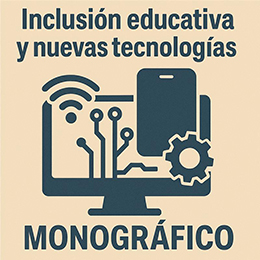Using QR codes for continuous assessment in higher education
DOI:
https://doi.org/10.51302/tce.2016.97Keywords:
QR codes (quick response codes), information and communications technology (ICT), continuous assessment, degree, Social Work, metacognitive strategiesAbstract
The implementation of information and communications technology (ICT) in education has accelerated in recent years. At university level educational platforms that provide access to the contents of different subjects are used, as well as on-line communication between teachers and students.
This project intended to improve teacher quality and motivation and satisfaction in 1st grade students, through the insertion of new ICT tools [forms Google and QR codes (quick response codes)] that allow students the continuous assessment of their own learning, with particular emphasis on the application of metacognitive strategies for problem solving.
It was conducted during the academic year 2014-2015 in the subject of Basic Psychology (practices). The subject Basic Psychology is taught in 1st Degree of Social Work at the Complutense University of Madrid. It consists of six ECTS (European Credit Transfer and Accumulation System) credits and as such, students receive two hours of lecture and practical class one hour each week. It was during the weekly hour of practice which was carried out this innovation project.
Downloads
References
Azevedo, R. [2005]: «Using a hypermedia as a metacognitive tool for enhancing student learning? The role of self-regulated learning», Educational Psychologist, 40 (4), págs. 199-209.
Brown, A. L. [1980]: «Metacognitive development and reading», en R. J. Spiro, B. C. Bruce y W. F. Brewer (eds.), Theoretical issues in reading comprehension, Hillsdale (NJ): LEA.
[1987]: «Metacognition, executive control, self-regulation and other more mysterious mechanisms», en F. Weinert y R. Kluwe (eds.), Metacognition, motivation and understanding. Hillsdale (NJ): LEA.
Burón, J. [1996]: Enseñar a aprender: introducción a la metacognición, Bilbao: Ediciones Mensajero.
Coll, C. y Monereo, C. [2008]: Psicología de la educación virtual, Madrid: Morata.
Delgado, A. M.; Borge, R.; García, J.; Oliver, R. y Salomón, L. [2005]: Competencias y diseño de la evaluación continua y final en el Espacio Europeo de Educación Superior, Programa de Estudios y Análisis, Universitat Oberta de Catalunya y Universidad Pompeu Fabra, Ministerio de Educación y Ciencia.
Flavell, J. H. [1971]: «First discussant’s comments. What is memory development the development of?», Human Development, 14, págs. 272-278.
[1976]: «Metacognitive aspects of problem solving», en B. Resnick (ed.), The nature of intelligence, Hillsdale (NJ): Erlbaum.
[1981]: «Cognitive monitoring», en W. P. Dickson (ed.), Children’s oral comunication skills, New York: Academic Press.
[1987]: «Speculations about the nature and development of metacognition», en F. Weinert y R. Kluwe (eds.), Metacognition, motivation and understanding, Hillsdale (NJ): LEA.
Flavell, J. H. y Wellman, H. M. [1977]: «Metamemory», en R. V. Kail Jr. y J. W Hagen (eds.), Perspectives on the development of memory and cognition, Hillsdale (NJ): LEA, págs. 3-33.
Jiménez, V. [2004]: Metacognición y comprensión de la lectura: evaluación de los componentes estratégicos (procesos y variables) mediante la elaboración de una escala de conciencia lectora (ESCOLA), Madrid: Universidad Complutense de Madrid.
Jiménez, V.; Puente, A.; Alvarado, J. M. y Arrebillaga, L. [2009]: «La medición de las estrategias metacognitivas mediante la escala de conciencia lectora ESCOLA», Revista de Investigación Psicoeducativa, 7 (2), págs. 185-205.
Llopis, C.; Jiménez, V. y Benítez, F. [2015]: «Programa de entrenamiento en estrategias metacognitivas y uso responsable de herramientas TIC», en R. Santiago, S. Trabaldo, M. Kamijo y A. Fernández (eds.), Mobile learning: nuevas realidades en el aula, Digital Text.
Mateos, M. M. [2001]: Metacognición y educación, Buenos Aires: Aique.
Mokhari, K. y Reichard, C. A. [2002]: «Assessing student´s metacognitive awareness of reading strategies», Journal of Educational Psychology, 94 (2), págs. 249-259.
Müller, W. [2009]: «Metacognición y TIC: una combinación que permite la construcción de escenarios posibles en educación», Interactic, 12 (2), págs. 1-12.
Pintrich, P. R. y Groot, E. V. de [1990]: «Motivational and self-regulated learning components of classroom academic performance», Journal of Educational Psychology, 82 (1), págs. 33-40.
Pozo, J. I. y Monereo, C. [2009]: «La nueva cultura del aprendizaje universitario o por qué cambiar nuestras formas de enseñar y aprender», en J. I. Pozo y M. P. Pérez Echevarría (eds.), Psicología del aprendizaje universitario: la formación en competencias, Madrid: Morata, págs. 9-28.
Puente, A. [2011]: Psicología contemporánea básica y aplicada, Madrid: Pirámide.
Ríos, P. [1991]: «Metacognición y comprensión de la lectura», en A. Puente (ed.), Comprensión de la lectura y acción docente, Madrid: Fundación Germán Sánchez Ruipérez, págs. 275-298.
Schraw, G. [1998]: «Promoting general metacognitive awareness», Instructional Science, 26 (1-2), págs. 113- 125.
Suárez, N.; Núñez, J. C.; Fernández, E.; Cueli, M. y García, T. [2012]: «Efecto diferencial de un programa de intervención sobre los enfoques de aprendizaje en educación superior: ¿modalidad presencial o virtual?», III Jornadas Internacionales de Campus Virtuales, Universidad de Oviedo.
Zapata, M. [2012]:«Evaluación de la calidad en entornos sociales de aprendizaje», III Jornadas Internacionales de Campus Virtuales, Universidad de Murcia.
Downloads
Published
How to Cite
Issue
Section
License
Copyright (c) 2016 Virginia Jiménez Rodríguez, Carmen Llopis Pablos, Patricia Jara Calaforra Faubel, Pierre Josué Almagro Lapo, Jesús María Alvarado Izquierdo, Aníbal Puente Ferreras

This work is licensed under a Creative Commons Attribution-NonCommercial-NoDerivatives 4.0 International License.


























